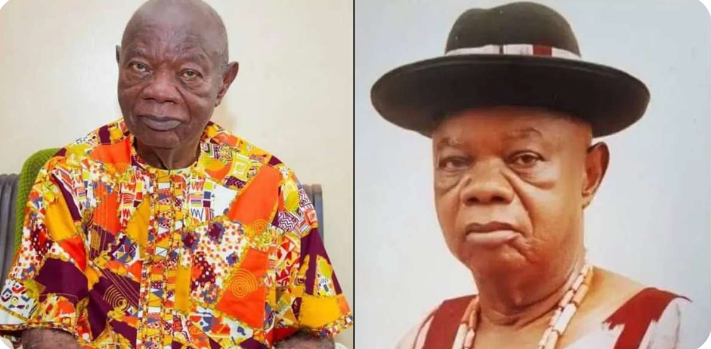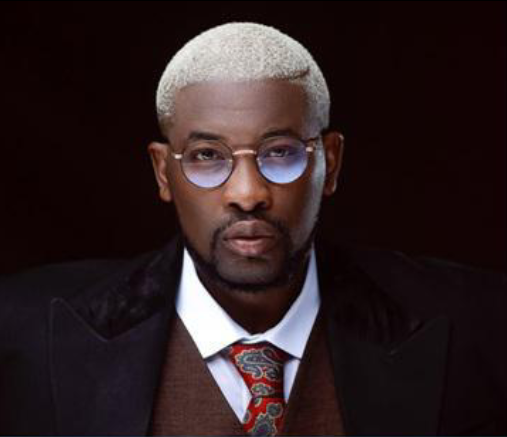
Igbo Legend Bows Out: Nigeria Mourns Mike Ejeagha, Highlife Icon and Folklore Custodian, Dead at 95

Nigeria woke up to somber news on Saturday, June 7, 2025, as the passing of veteran highlife musician and revered folklorist Mike Ejeagha was confirmed by his family. He died on Friday night at approximately 8 p.m. at the 32 Garrison Hospital in Enugu, bringing an extraordinary life to a close at the age of 95. His eldest son, Emma Ejeagha, confirmed the news that would reverberate across generations and regions of Nigeria, particularly among lovers of traditional Igbo music and culture.
Mike Ejeagha was not just a musician—he was a living archive of Igbo philosophy, a griot whose music was laced with wisdom, parables, and deep cultural insight. Often referred to as "Gentleman Mike," he spent over six decades telling stories that reached far beyond entertainment. His songs were schools of moral instruction, each lyric a coded message for those wise enough to listen.
He rose to fame during the golden era of highlife music, but unlike many of his contemporaries who chased fast beats and fame, Ejeagha took a different path—one deeply rooted in tradition and the spoken word. He carved a niche for himself by turning proverbs and parables into ballads, essentially making music that didn’t just move the feet but also stirred the soul. To many, listening to Mike Ejeagha was akin to sitting at the feet of an elder under a moonlit sky, absorbing the oral traditions of the Igbo people.
Throughout the 1980s and 1990s, his voice dominated the airwaves of eastern Nigeria. His songs were staples in homes, markets, and local gatherings. Even in an era increasingly consumed by Western influence, Ejeagha remained resolute in preserving and promoting indigenous knowledge. He sang mostly in the Igbo language, sometimes peppered with English, but never lost the essence of his cultural identity. For this, he earned admiration not only as a musician but also as a cultural custodian.
Though his health declined in recent years, his legacy saw a remarkable resurgence in 2024 when his song inspired the viral “Gwo Gwo Ngwo” dance challenge, catapulted into the digital spotlight by popular skit maker Brain Jotter. The trend swept across TikTok and Instagram, capturing the attention of a younger generation who, perhaps unknowingly, were dancing to the beat of their heritage. It was a fitting twist of fate that an artist who spent his life preserving oral traditions would once again become a household name through the modern medium of social media.
For those who knew him, either personally or through his work, Ejeagha was more than just a highlife musician. He was an ethnomusicologist, a philosopher, and a sage. He believed that music had the power to teach, to heal, and to preserve. “If you listen well, you will learn something,” he often said in interviews, a humble phrase that now echoes with new poignancy.
Born in the 1930s in Enugu, Mike Ejeagha’s musical journey began in the early 1950s. Over time, he recorded dozens of albums, including such classics as Omekagu, Ukwu Nwata, and Akuko N’Egwu. His storytelling often touched on themes like honesty, community, hard work, and the inevitability of karma. These weren’t just songs; they were moral compasses set to melody. He seamlessly blended the instruments of highlife—guitars, drums, and horns—with the syntax of folklore, creating a genre that was uniquely his.
He was also a mentor to many upcoming musicians. Throughout his career, he opened his doors and mind to younger artists seeking to learn the craft not just of music, but of meaning. His home in Enugu was considered a sanctuary for cultural discussion, storytelling, and musical experimentation.
Ejeagha’s passing leaves a vacuum not easily filled. While there are many highlife musicians today, few have managed to marry rhythm with narrative the way he did. His mastery of proverbs, his patient delivery, and his unshakable commitment to cultural authenticity made him an icon whose relevance extended far beyond the music industry.
Tributes have been pouring in from artists, fans, and cultural institutions across the country. Many have taken to social media to express their grief and admiration. “Mike Ejeagha was a father to us all,” tweeted Nollywood actor Pete Edochie. “Through his music, he taught, corrected, and inspired. He was the voice of tradition in a noisy world.”
In Enugu, residents have begun organizing informal memorials, playing his music in streets and local bars, and sharing stories of how his songs impacted their lives. Radio stations have cleared their regular programming to run tributes and retrospectives of his work. His impact on the cultural fabric of southeastern Nigeria is incalculable and his death marks the end of an era.
While it is tragic to lose a figure of such magnitude, Mike Ejeagha leaves behind a monumental legacy. His recordings, many of which have been digitized, continue to educate and inspire. His influence is evident not just in the music scene but in the preservation of Igbo language and oral traditions. In a time when the risk of cultural erosion is high, Ejeagha stood as a bulwark against forgetfulness.
He may have passed on, but his voice remains—timeless, instructive, and enduring. As Nigeria and the wider African community mourns, there is also a renewed sense of gratitude: gratitude that we had Mike Ejeagha, that we heard his stories, danced to his tunes, and learned from his wisdom.
In the words of one of his most beloved tracks, "Akuko n’egwu ka m na-akọ" (I tell stories through song)—a promise he fulfilled to the very end. Farewell, Mike Ejeagha. Your stories will never fade.


